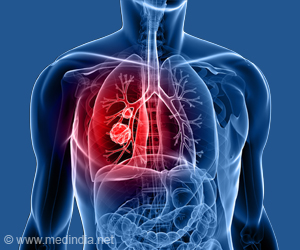Most patients with germline mutations in their breast cancer believe they are at high risk of having cancer in the opposite breast.
- Many women undergo a bilateral mastectomy to lower the chances of developing a second breast cancer
- Premenopausal women with BRCA1, BRCA2, or CHEK2 mutations have a greater risk of contralateral breast cancer than postmenopausal women with breast cancer diagnosis
- Contralateral breast cancer is more common in black women than in non-Hispanic white women
Risk of Contralateral Breast Cancer
Data from 15,104 prospectively monitored women in the CAnceR Risk Estimates Related to Susceptibility (CARRIERS) collaboration were used in the study. Patients with a hereditary BRCA1, BRCA2, or CHEK2 mutation have a twofold greater risk of developing cancer in both breasts, known as contralateral breast cancer, according to the study. Patients with germline ATM mutations, on the other hand, did not have a significantly increased incidence of contralateral breast cancer. Only those with estrogen receptor-negative illness had a significantly increased incidence of contralateral breast cancer among PALB2 carriers.Personalized Assessment of Contralateral Breast Cancer Risk
According to co-author Siddhartha Yadav, M.D., medical oncologist at Mayo Clinic Comprehensive Cancer Center, most patients with breast cancer who have germline mutations believe they are at high risk of having cancer in the opposite breast. While this is true for BRCA1/2 mutant carriers with breast cancer, the risk of contralateral breast cancer in carriers of ATM, CHEK2, or PALB2 germline mutations had not previously been shown. Even for BRCA1/2 carriers, there had been no complete assessment of contralateral breast cancer risk based on age, estrogen receptor status, menopausal state, and the effect of treatment for primary breast cancer."The findings reveal important information that will aid in a personalized assessment of contralateral breast cancer risk in our patients who are germline mutation carriers," Dr. Yadav says. "Having this level of detail will help guide decisions between patients and their care teams on appropriate screening and steps to reduce the risk for contralateral breast cancer based on more precise and individualized risk estimates."
Researchers discovered that premenopausal women with germline mutations have a greater risk of contralateral breast cancer than postmenopausal women at the time of breast cancer diagnosis. The study discovered that black women and non-Hispanic white women with germline mutations in breast cancer predisposition genes have an equal heightened risk for contralateral breast cancer, implying that risk management techniques should be equivalent.
"Many women will undergo a bilateral mastectomy to reduce the possibility of a second breast cancer," Dr. Couch says. "Now we have data to work from when deciding to remove the second breast, pursue aggressive surveillance or take preventive medication."
















